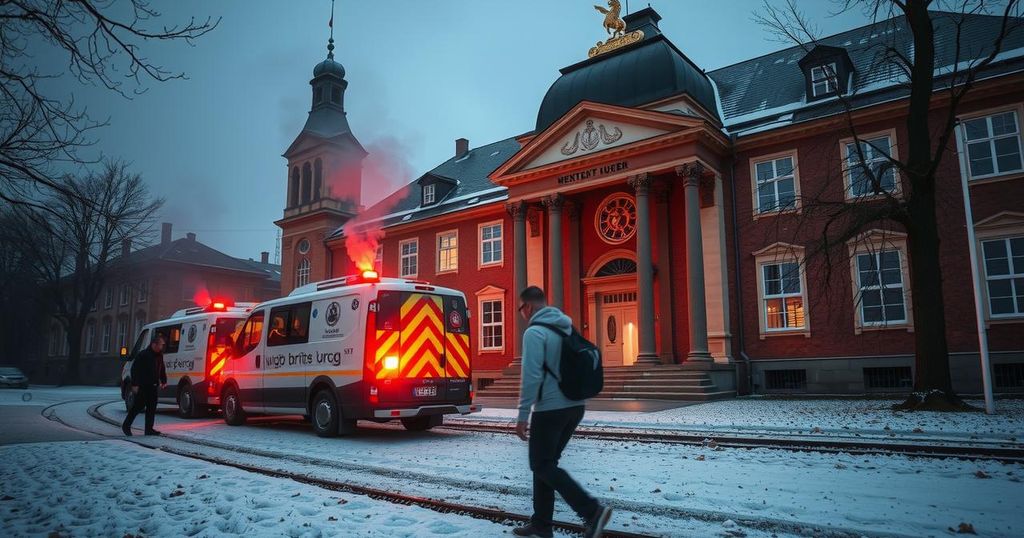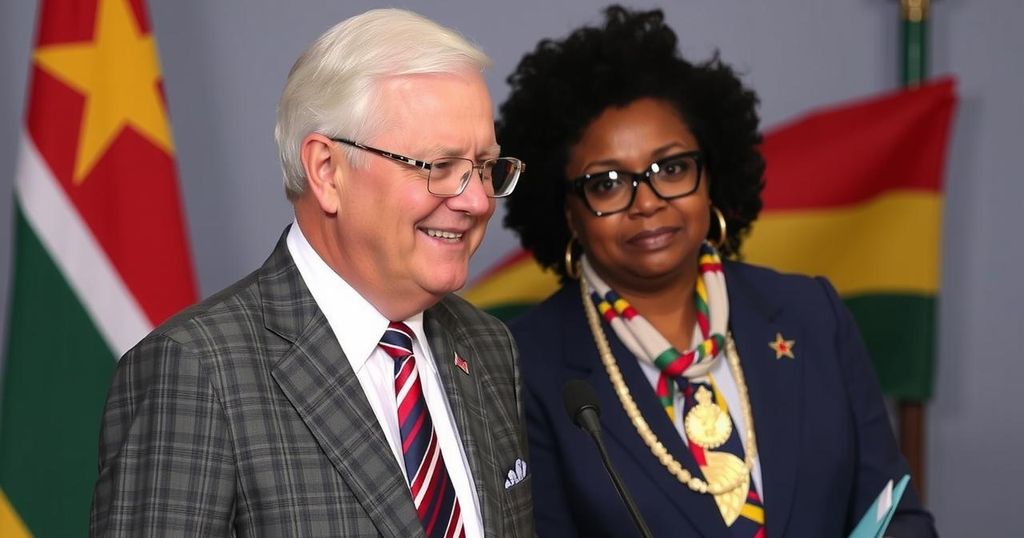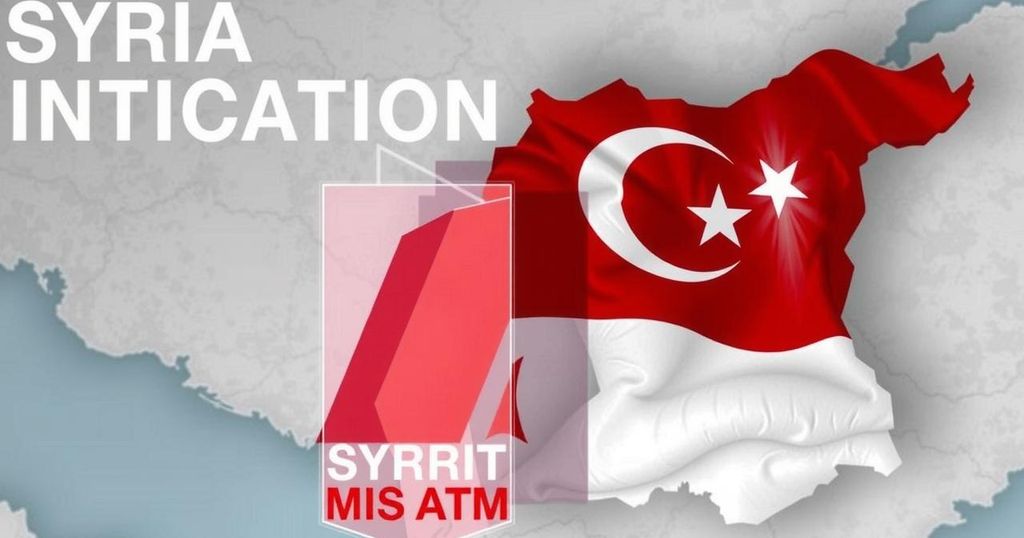World news
ALICE WEIDEL, ANTISEMITISM, ASIA, BENJAMIN HÖHNE, BRANDENBURG, CHRISTIAN DEMOCRATS, DOMINIK KAUFNER, DW, EUROPE, EUROPEAN IDENTITARIAN NETWORKS, EUROPEAN UNION, GERMANY, LOWER SAXONY, MARTIN SELLNER, NORTH RHINE - WESTPHALIA, PARLIAMENTARY ELECTIONS, POLITICS, POPULISM, SPD, SVEN TRITSCHLER, SYRIA, TECHNICAL UNIVERSITY, WORLD WAR II
Ethan Kumar
0 Comments
Impact of Magdeburg Attack on German Election Campaign
The attack at the Magdeburg Christmas market has sparked significant political debate in Germany, particularly regarding immigration and security. Right-wing parties, especially the AfD, are attempting to exploit the tragedy to advocate for stricter policies. Misinformation and foreign influence are complicating the political landscape as the country approaches its upcoming federal elections.
The Magdeburg Christmas market attack on December 22, 2024, which resulted in multiple fatalities, has become a point of contention among political factions in Germany, particularly as federal elections approach. Initial misinformation regarding the number of attackers and their backgrounds quickly spread, largely disseminated by right-wing figures including politicians from the Alternative for Germany (AfD) party. The suspect, identified as Talib A.*, was a Saudi national with alleged connections to the AfD, prompting calls from AfD leaders for stricter immigration controls and the resignation of current government officials. Political analysts predict that discussions surrounding migration and security will dominate the upcoming election campaign, with right-wing rhetoric gaining traction in the wake of such tragic events. Moreover, foreign influences, including remarks from American figures, are also complicating the political landscape in Germany, raising concerns about foreign meddling in local matters. The situation illustrates the delicate interplay between current events, political agendas, and public opinion ahead of one of Germany’s most pivotal electoral cycles in recent history.
The incident in Magdeburg is not merely a tragic event but a significant political flashpoint ahead of upcoming federal elections in Germany. It highlights the ongoing debates surrounding migration policy and public safety, which have increasingly been focal points in German political discourse. Right-wing parties, particularly the AfD, are leveraging such events to advocate for stricter immigration controls, capitalizing on public fear and dissatisfaction. Additionally, the role of disinformation—both local and foreign—in shaping political narratives has become a critical issue that affects the electoral process and public perception of security and migration.
The Magdeburg attack has intensified discussions on immigration and security within the German political arena, particularly benefiting right-wing parties like the AfD. As political leaders scramble to respond to the tragedy and its implications, the likelihood of increased rhetoric surrounding security concerns appears imminent. Furthermore, the influence of foreign entities on domestic politics raises important questions regarding the integrity of Germany’s electoral process. The intersection of these factors will undoubtedly shape the political landscape as the elections draw closer.
Original Source: www.dw.com




Post Comment